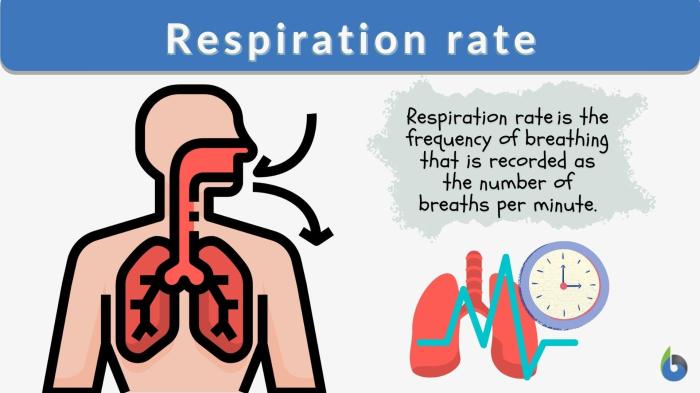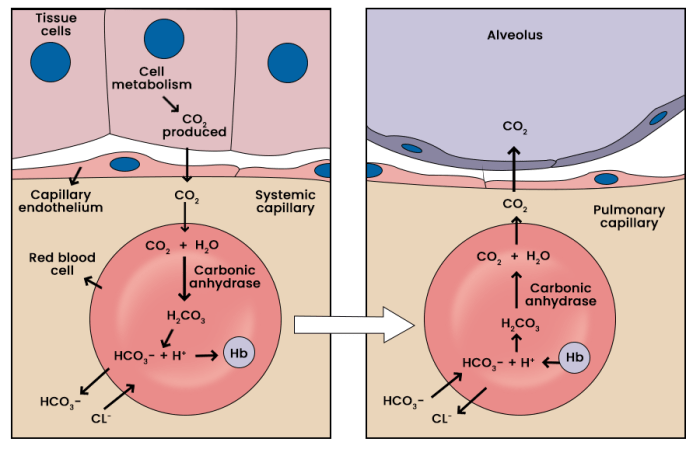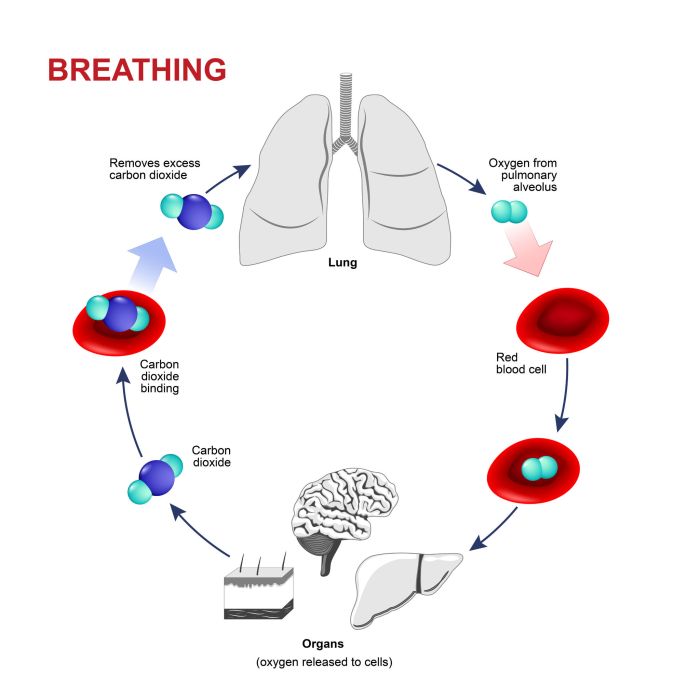Arrange in order the events resulting from hyperventilation – Unveiling the profound impact of hyperventilation on the human body, this discourse delves into the physiological, neurological, cardiovascular, and psychological ramifications of this condition. As we explore the cascade of events triggered by hyperventilation, we uncover the intricate interplay between our physical and mental well-being.
Initiated by an excessive increase in respiratory rate, hyperventilation sets in motion a chain reaction that affects multiple organ systems. The resulting physiological changes, including decreased carbon dioxide levels and alkalosis, can manifest as lightheadedness, dizziness, and muscle spasms.
Hyperventilation: Physiological, Neurological, Cardiovascular, and Psychological Effects: Arrange In Order The Events Resulting From Hyperventilation

Hyperventilation is a condition characterized by rapid, shallow breathing. It can occur in response to stress, anxiety, or certain medical conditions. Hyperventilation can lead to a number of physiological, neurological, cardiovascular, and psychological effects.
Physiological Effects of Hyperventilation
Hyperventilation leads to increased respiratory rate, decreased carbon dioxide levels, and alkalosis. These changes can cause lightheadedness, dizziness, muscle spasms, and tingling in the hands and feet. In severe cases, hyperventilation can lead to seizures, coma, and even death.
Neurological Effects of Hyperventilation
Hyperventilation can also affect the nervous system. It can lead to changes in brain activity, impaired cognitive function, and anxiety. These effects are thought to be caused by changes in the levels of neurotransmitters, such as serotonin and dopamine.
Cardiovascular Effects of Hyperventilation
Hyperventilation can also affect the cardiovascular system. It can lead to increased heart rate, arrhythmias, and decreased blood pressure. These effects are thought to be caused by the changes in blood chemistry that occur during hyperventilation.
Psychological Effects of Hyperventilation, Arrange in order the events resulting from hyperventilation
Hyperventilation can also have a number of psychological effects. It can lead to anxiety, panic attacks, and feelings of unreality. These effects are thought to be caused by the changes in brain activity that occur during hyperventilation.
Popular Questions
What are the common symptoms of hyperventilation?
Short-term symptoms include lightheadedness, dizziness, and muscle spasms. Long-term consequences can include anxiety, panic attacks, and impaired cognitive function.
How is hyperventilation diagnosed?
Diagnosis typically involves a physical examination, medical history review, and blood tests to assess carbon dioxide levels and blood chemistry.
What are the effective treatments for hyperventilation?
Management strategies include breathing exercises, cognitive-behavioral therapy, and medication to reduce symptoms and prevent recurrence.

